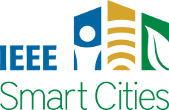Message from the Editorial Board: Half Way Through 2023
Written by Bernard Fong
Almost everything is now back to normal after the global pandemic since the end of 2019. While the risk to public health remains, this post-pandemic phase provides numerous challenges and opportunities to the development and realization of smart cities when moving to the new normal.
Looking ahead to the second half of 2023 and beyond, we would like to invite experts in different areas to organize Special Issues for the IEEE Smart Cities eNewsletter. Some examples of areas include:
Public Health and Safety
Smart cities will need to implement advanced technologies and data-driven solutions to monitor and manage public health and safety. This includes ensuring effective disease surveillance, contact tracing, and crowd management systems.
Digital Divide
The pandemic has highlighted the digital divide, with unequal access to technology and connectivity. Smart cities must address this issue to ensure inclusivity and equal access to digital services for all residents. For example, the pandemic has increased awareness about personal health and wellness. Smart cities can integrate smart healthcare solutions, such as telemedicine, remote monitoring, and health tracking devices, to enhance healthcare access and improve overall well-being.
Digital Transformation
The pandemic has accelerated the adoption of digital technologies across various sectors. Smart cities can leverage this momentum to further embrace digital transformation, improving efficiency and sustainability in areas such as transportation, energy management, waste management, and e-governance.
Data Privacy and Security
As smart cities rely on vast amounts of data, ensuring robust privacy and security measures becomes crucial. Cities need to establish strong data protection frameworks and cybersecurity protocols to safeguard sensitive information and maintain public trust.
Resilience and Crisis Management
The pandemic has highlighted the need for robust crisis management strategies. Smart cities can leverage real-time data analytics, AI-driven modeling, and sensor networks to enhance emergency response systems, monitor critical infrastructure, and improve disaster preparedness. The crisis has emphasized the importance of citizen engagement and participatory governance. Smart cities can leverage digital platforms and interactive technologies to enhance citizen participation, gather feedback, and co-create solutions for better urban living.
Economic Recovery
Many cities have experienced significant economic setbacks due to the global pandemic over the past three and a half years. Smart cities need to focus on revitalizing local economies, promoting entrepreneurship, and creating job opportunities through the deployment of advanced technologies and innovation.
Remote Work and Collaboration
With the rise of remote work, smart cities have an opportunity to support and enhance virtual collaboration, digital connectivity, and telecommuting infrastructure. This can lead to reduced commuting, increased productivity, and a more flexible workforce across different service areas within a smart city.
Sustainable Development
The post-pandemic era presents an opportunity to prioritize sustainability and resilience in urban planning. Smart cities can leverage data analytics and IoT devices to optimize resource management, reduce energy consumption, and promote environmentally friendly practices. In this month’s Newsletter, we feature two papers on smart waste that cover relevant topics on how waste can be treated in an energy-efficient manner. We are hopeful that more articles will be featured on sustainable smart cities in the near future.
Overall, the post-pandemic era provides an impetus for smart cities to reimagine urban life and leverage technology to build more sustainable, inclusive, and resilient communities. However, addressing the challenges and harnessing the opportunities will require careful planning, collaboration, and ongoing adaptability. We, therefore, look forward to receiving contributions from the broader Smart Cities community. Please do not hesitate to get in touch with us if you are interested in either running a Special Issue or contributing a feature article.
This article was edited by Bernard Fong.
To view all articles in this issue, please go to June 2023 eNewsletter. For a downloadable copy, please visit the IEEE Smart Cities Resource Center.

To have the eNewsletter delivered monthly to your inbox, join the IEEE Smart Cities Community.
Past Issues
To view archived articles, and issues, which deliver rich insight into the forces shaping the future of the smart cities. Older eNewsletter can be found here. To download full issues, visit the publications section of the IEEE Smart Cities Resource Center.



